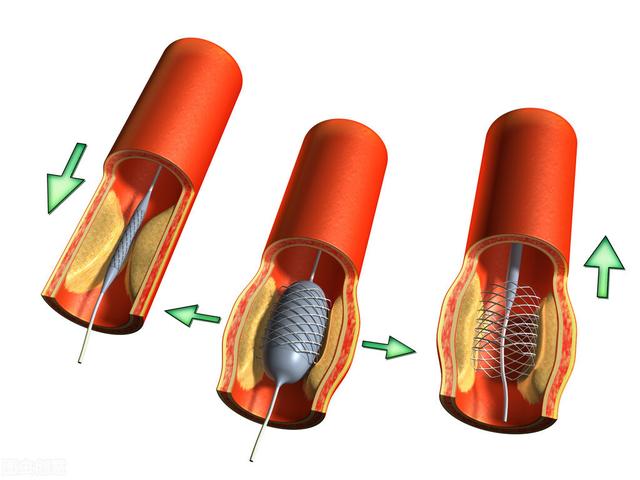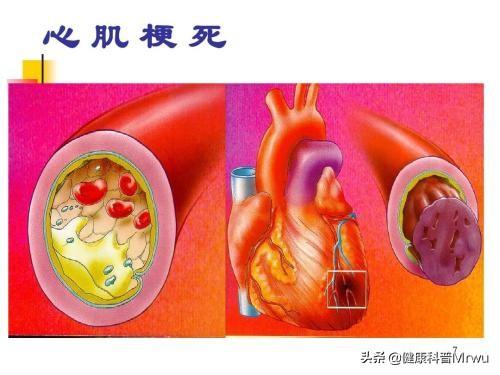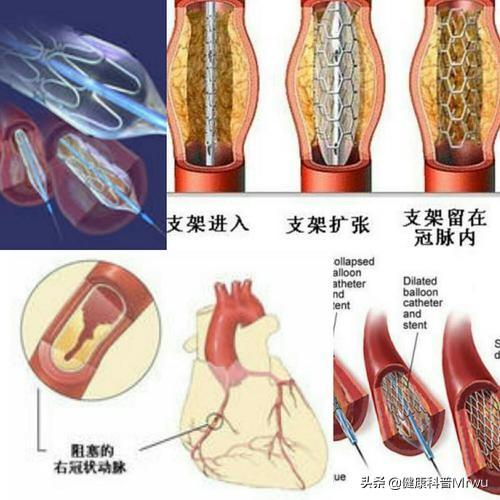Can myocardial infarction be cured? How long does it take to recover from surgery?
Hello everyone! I'm Dr. Yang, a general practitioner who focuses on blood pressure, blood glucose, lipid, and uric acid management. Let me answer this netizen's question.
Can myocardial infarction be cured?
Let's start with the conclusion that myocardial infarction cannot be cured from current treatments because necrotic heart muscle cells cannot be regenerated. So why do we bother to treat myocardial infarction? It is to prevent the infarction from expanding and to save lives. As we all know, there are two kinds of surgeries to treat myocardial infarction, one is cardiac stenting and the other is coronary artery bypass grafting, but neither of these surgeries is designed to open the blood vessels as soon as possible to supply blood to the heart, to save the necrotic cells that are about to be necrotic, and to prevent the scope of myocardial infarction from expanding. Therefore, surgery for myocardial infarction is life-saving.

How long does it take to recover from surgery?
There is no absolute time for this, and the extent of the myocardial infarction will be different for each person who has a different location and number of coronary artery lesions. For example, some people have a blockage in one branch of the coronary artery, while others may have blockages in multiple branches, or perhaps even in the main trunk, so the condition will be different. Some people with heart attacks may be discharged from the hospital within a week, while others may stay for more than a month.
But no matter what kind of infarction, once myocardial infarction occurs, the earlier to the hospital, the better the effect of treatment, the faster the recovery. If the blood vessels can be opened within 120 minutes after the occurrence of myocardial infarction, the success rate of treatment will be greatly increased.

After the surgery it's all over?
As I mentioned earlier, heart muscle cells cannot regenerate after death, and even if a heart attack improves and is discharged from the hospital, it can still be said to be "cured". Therefore, it does not mean that surgery is a permanent cure. Surgery is only a means to save your life, and preventing another heart attack after surgery is the key. As long as there has been a heart attack, the likelihood of having another heart attack in the next 10 years is at least 20%. Adherence to long-term medication is an effective preventive procedure to minimize recurrence of cardiovascular disease.
Two of the most important classes of medications not to discontinue without authorization are those that fight platelet aggregation (aspirin drama or clopidogrel or tegretol) and those that stabilize vascular plaques (statins, such as atorvastatin, resuvastatin, etc.).
There are also heart rate, blood pressure, blood lipids is also very important, these indicators are elevated will also increase the risk of recurrence of heart attack. Generally speaking, heart rate should be 55~60 beats per minute, blood pressure should not exceed 130/80mmHg, and LDL cholesterol in blood fat should not exceed 1.8mmol/L.
If you have diabetes, you should also keep your blood sugar under control. Pay attention to a healthy lifestyle such as low-salt, low-sugar and low-fat diet, moderate exercise, weight control, stop smoking and limit alcohol consumption, maintain an optimistic mood, and combine work and rest.

Well, today will say so much, if you think it can be said on a point of praise it ~ have questions can be concerned about me to get more related health knowledge, thank you for reading!
Hi everyone, happy to answer this question.
This question asked more professional, first of all I want to declare to determine one point, is that myocardial infarction is the most dangerous cardiovascular disease and even fatal disease, although can be put into the stent drug treatment, relieve the emergency, to save life, but after myocardial infarction or coronary artery disease may recur can not be cured, the need for long-term and even lifelong drug treatment.

Acute myocardial infarction often exists in the blood supply of cardiac blood vessels and oxygen interruption, at any time there may be arrhythmia, shock or even sudden cardiac death, in order to prevent and control the risk of death, the best way is to timely coronary intervention implantation of stents to open the blood vessels or surgical bypass grafting, so as to improve the ischemia of the myocardium, to rescue necrotic myocardium, and to save lives.

Even if the heart is successfully done after surgery, it is also necessary to life-long medication, especially within one year after surgery must adhere to the reasonable use of medication in order to prevent myocardial infarction reoccurrence, such as oral aspirin, clopidogrel combination of antiplatelet for 1 year, long-term oral atorvastatin calcium tablets to lower lipids, and adhere to the use of medications such as metoprolol.

Generally after coronary heart disease, myocardial infarction must adhere to long-term or even lifelong medication, secondary prevention of cardiovascular disease. The main purpose of prevention and treatment of recurrence, improve the prognosis, and prevent the recurrence of blockage of other cardiac blood vessels in addition to the infarcted vessel. This is very important for patients with cardiovascular disease to pay attention to.

You'll have to consult a doctor.
This question and answer are from the site users, does not represent the position of the site, such as infringement, please contact the administrator to delete.